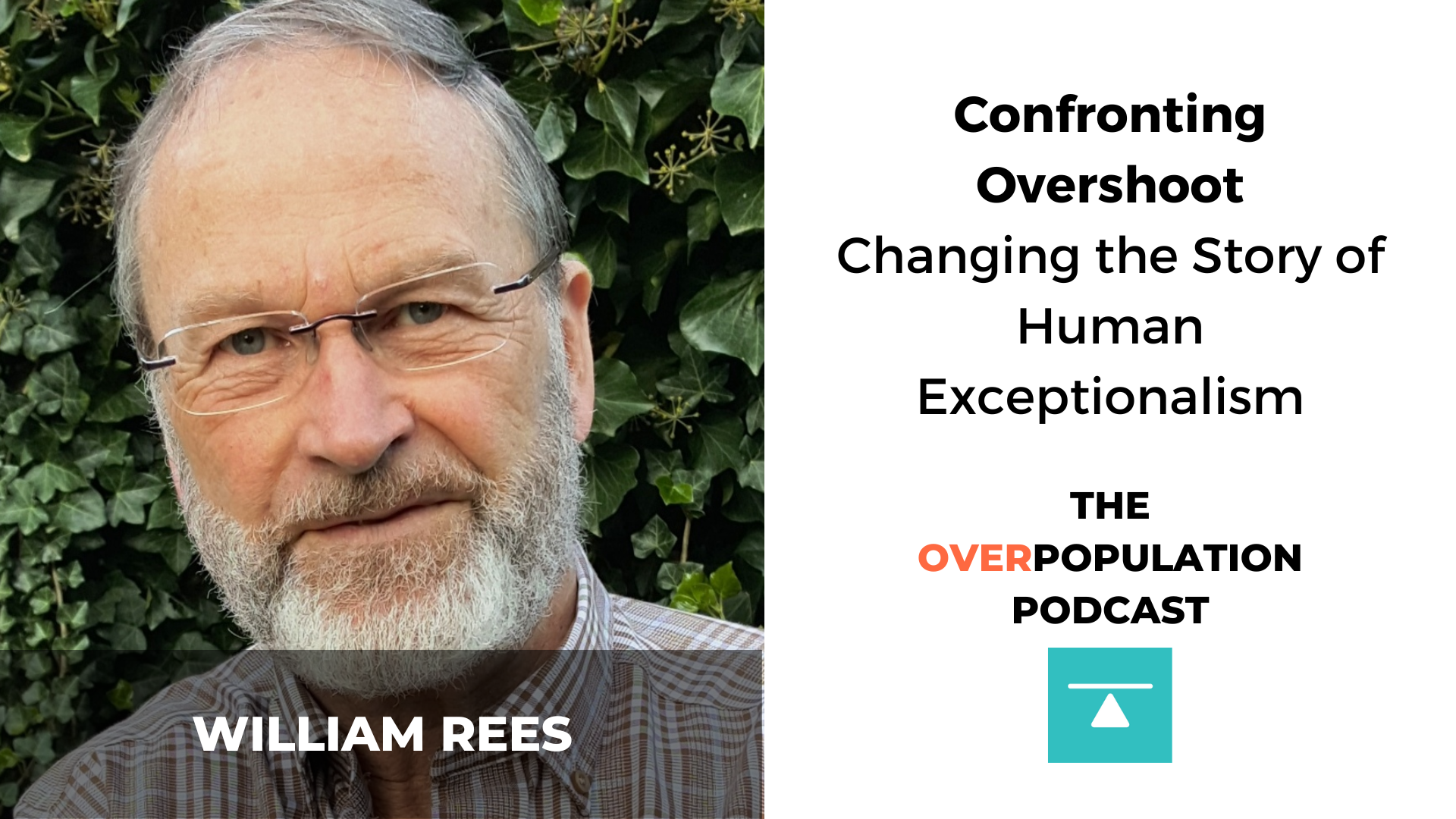
OUR PODCAST
Listen on your favorite app
The Overpopulation Podcast
The Overpopulation Podcast (here’s why we use the term “overpopulation”) features enlightening conversations between executive director Nandita Bajaj, researcher Alan Ware, and expert guests to discuss the often misunderstood impacts of our expanding human footprint on human rights, animal protection, and ecological preservation, as well as individual and collective solutions. We are proud to be the first and only nonprofit organization globally that draws the connections between pronatalism, human supremacy, social inequalities, and ecological overshoot. Ranking in the top 1.5% of all podcasts globally, we draw over 20,000 listeners from across 80 countries.
Read our Listener Feedback. | Support this podcast. | Subscribe to our newsletter.
New to our podcast?
There are over 60 episodes of The Overpopulation Podcast. If you are new to the podcast and are looking for a good place to start, we recommend you listen to these episodes first.
Latest Episodes

New Podcast Announcement: "Beyond pronatalism | Finding fulfillment, with or without kids"
We’re excited to share that we’ve launched a second podcast, Beyond Pronatalism: Finding Fulfillment, With or Without Kids. Host Nandita Bajaj interviews women and men from diverse backgrounds who are courageously and creatively navigating pronatalism - the powerful pressures to have children - and forging unconventional pathways to fulfillment.
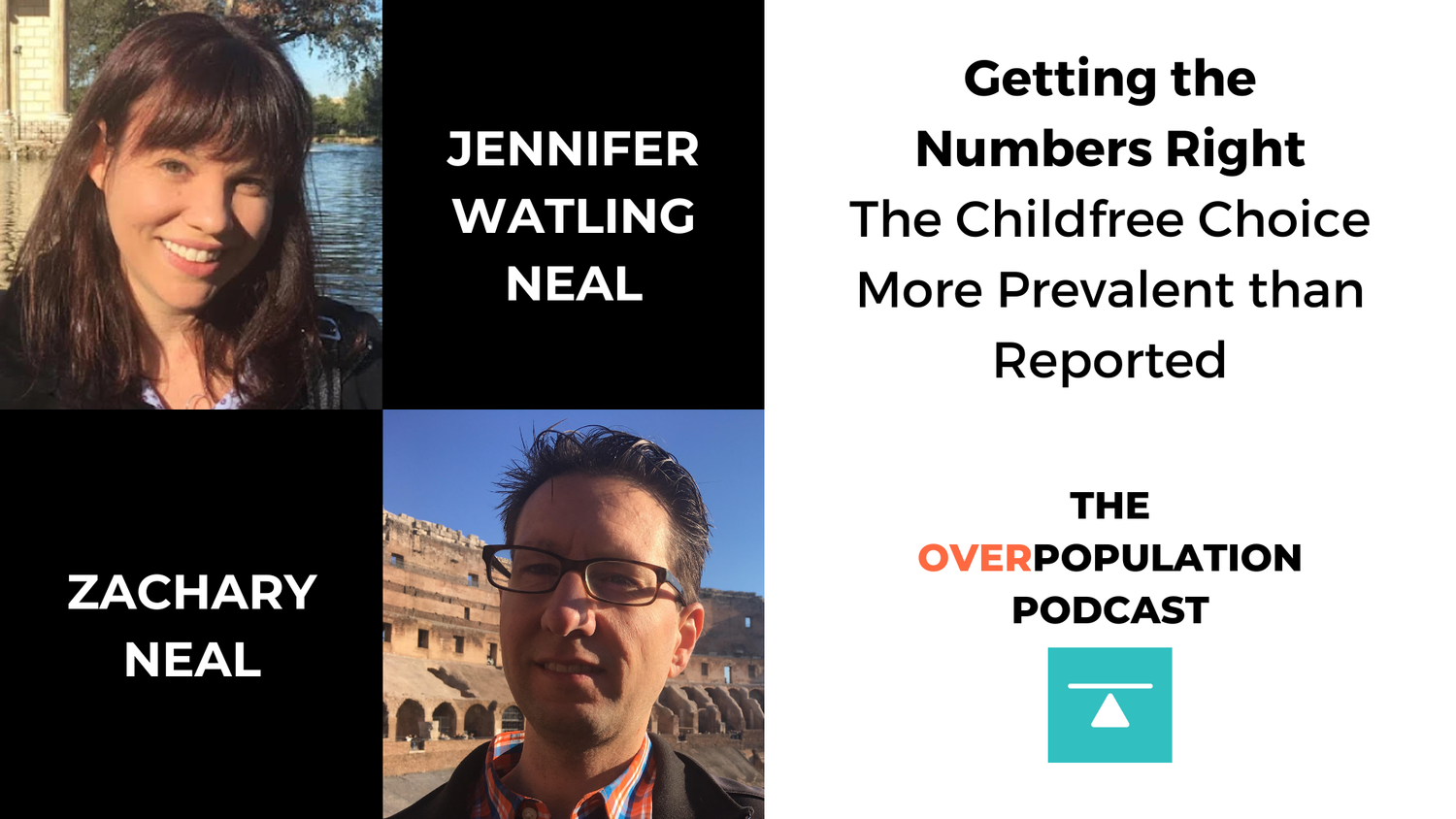
Getting the Numbers Right: The Childfree Choice More Prevalent than Reported
In this episode with Dr. Zachary Neal and Dr. Jennifer Watling Neal, we explore their research about the prevalence and characteristics of childfree adults in the US and globally, and how their research methods not only offer a more inclusive representation of this globally minoritized group, but also more objective demographic data.

Breaking Out of the Baby Matrix: Busting Common Pronatalist Myths
In this interview with Laura Carroll, internationally recognized expert on pronatalism and the childfree choice, we unpack the many pervasively pronatalist assumptions that people have to navigate while deciding whether or not to have children, and the effects of those decisions on people and planet.
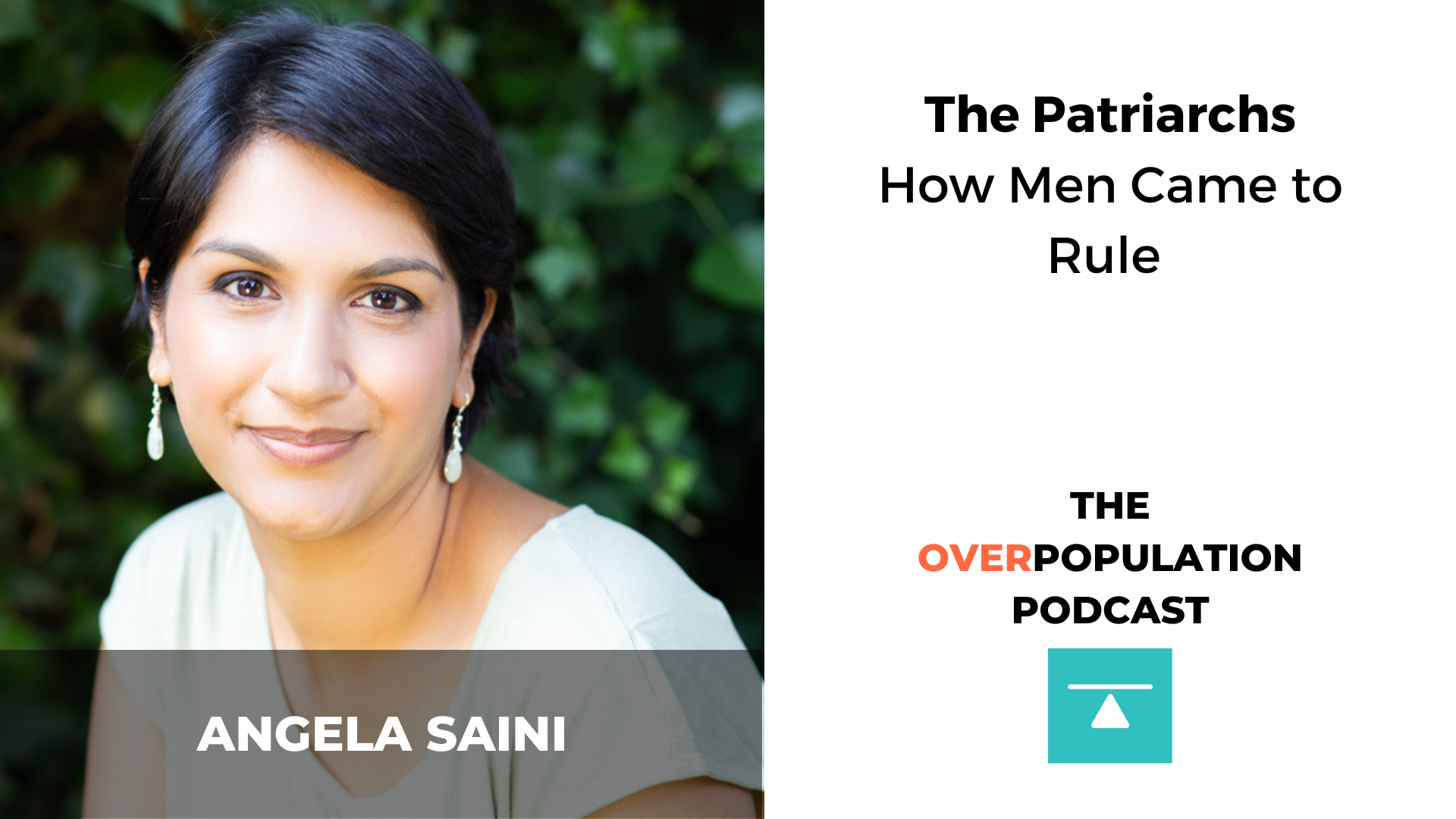
The Patriarchs: How Men Came to Rule
In this interview with award-winning science journalist Angela Saini, based on her bold and radical book The Patriarchs: How Men Came to Rule, we explore the roots and complex history of how patriarchy — in the form of gendered roles, pronatalism, and militarism — first became embedded in societies and spread across the globe from prehistory into the present.

The Toxification of Population Discourse: How Population Became a Dirty Word
When and why did population become a dirty word? And why are so many people shamed for advocating for population reduction? In this episode with political theorist and feminist scholar, Dr. Diana Coole, we unpack the history of the toxification of the population discourse over the last 30 years and the dire social and ecological consequences that this silencing has unleashed.

Population Growth, Modern Slavery, and Ecocide
Dr. Kevin Bales, world-renowned expert on contemporary global slavery, shines a light on the human rights violations and ecocidal impacts of modern day slavery, and the role that population growth, patriarchal pronatalism, religion, political regimes, global and local economies, and conflict play in perpetuating it.
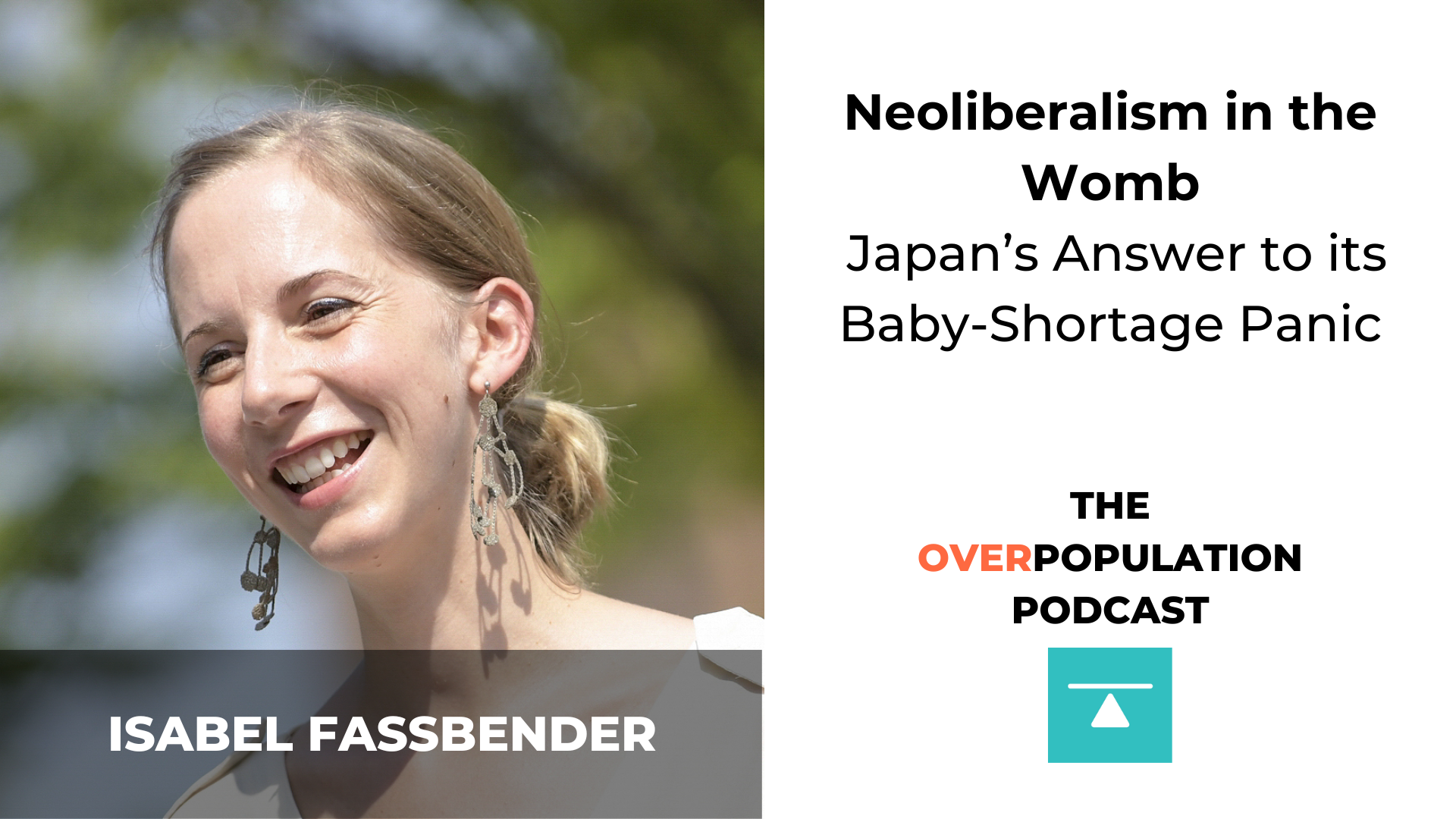
Neoliberalism in the Womb: Japan’s Answer to its Baby Shortage Panic
Japan-based feminist scholar, Dr. Isabel Fassbender, discusses the toxic mix of patriarchy, biomedical capitalism, and nationalism that has emerged in response to Japan’s slightly declining population.

The Environmental Impact of Overpopulation: The Ethics of Procreation
Dr. Trevor Hedberg discusses his recent book The Environmental Impact of Overpopulation: The Ethics of Procreation about the ethical implications of procreation, both in terms of the risk of harm to the child and to the planet, understanding how pronatalism influences procreative decision-making, while rejecting antinatalist and misanthopic philosophies.

Engaging Boys and Men to Confront Patriarchy in Uganda
Andrew Kyamagero, an award-winning Ugandan journalist and family-planning advocate discusses the interaction of population dynamics, family planning, and male involvement in the promotion of gender equity within Uganda.

Reproductive Autonomy: A Human Right and a Foundation for a Healthy Planet
In honor of World Population Day, long-term researcher, writer, and advocate of reproductive and planetary health, Robert Engelman shines a light on the intimate links between reproductive autonomy and planetary health.
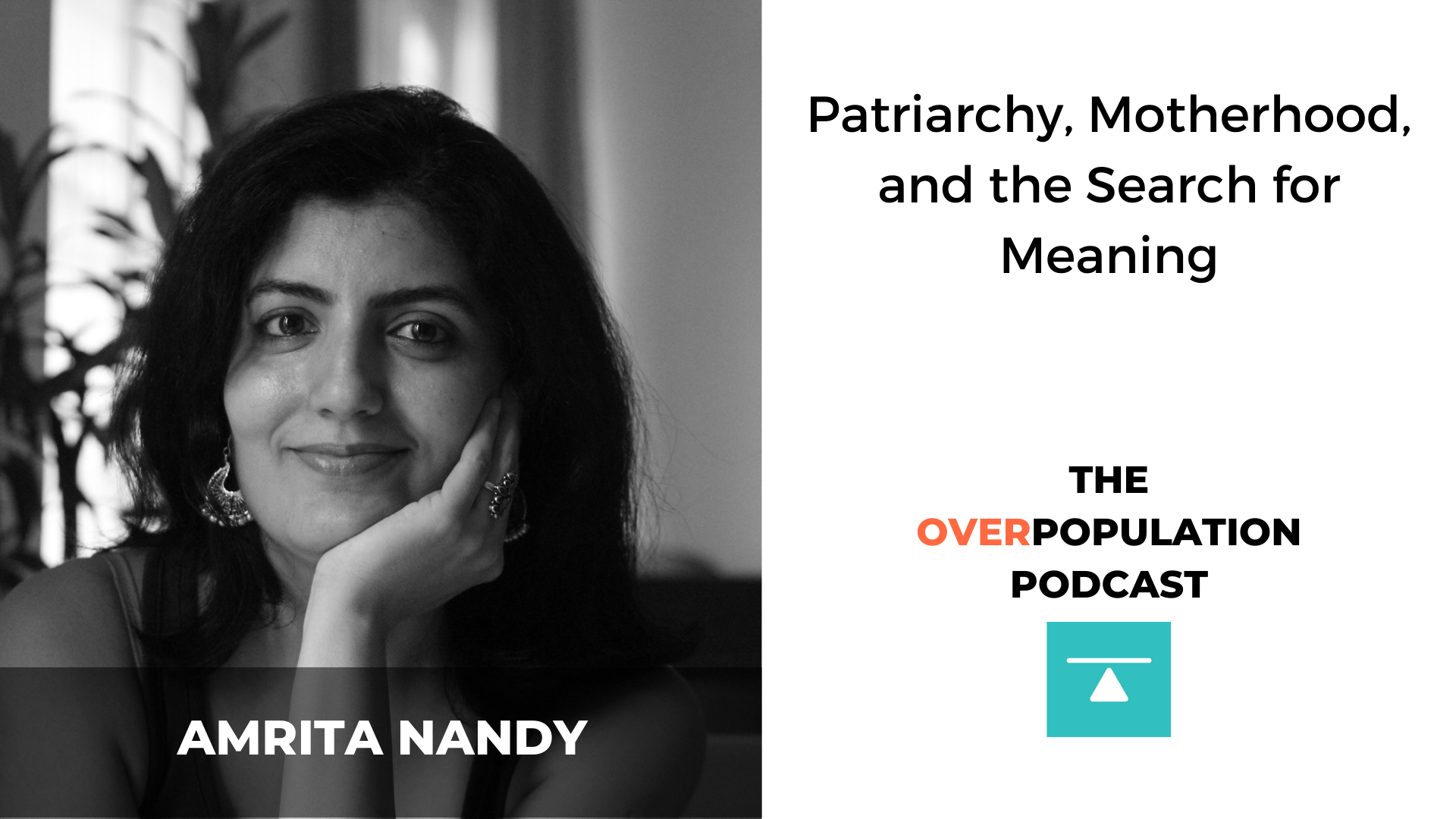
Patriarchy, Motherhood, and the Search for Meaning
Dr. Amrita Nandy, India-based feminist scholar addresses the questions: If autonomy is a basic human right, why do many women have little or no choice when it comes to motherhood? Do women know they have a choice? And how might we reimagine the widest sense of family-making and spiritual kinship that includes our love for all humans and more-than-humans?

An OB-GYN Unpacks the “Biological Clock,” Abortion, & Medical Pronatalism
OB-GYN Dr. Kristyn Brandi unpacks the “biological clock”, medical pronatalism, & the state of abortion care in post-Roe America. We also discuss the history of reproductive control & why understanding Critical Race Theory (CRT), Reproductive Justice (RJ), & pronatalism, is essential to justice & sustainability.

Breaking the Taboo on Motherhood Regret
Israeli sociologist Dr. Orna Donath discusses her groundbreaking research on motherhood regret, including the stringent control that society has over our emotions and actions, and how pronatalism is a cause for much confusion and suffering for parents and non-parents alike.

Soap Operas For Social Justice
Bill Ryerson, founder of one of the most effective sustainable population organizations in the world—Population Media Center, discusses the educational entertainment that his organization has used to promote important social and cultural changes that have helped 500 million people in over 50 countries.

The Unique Challenges of Being Black and Childfree
Dr. Kimya Nuru Dennis discusses her research on the Black childfree diaspora in countries around the world. We also touch upon the role that patriarchy and male domination plays in the relative powerlessness of women to take control over their reproduction, especially in BIPOC and LGBTQIA communities.

The Not-So-Selfish Choice To Be Childfree
Therese Shechter discusses her new paradigm shifting documentary film My So-Called Selfish Life about one of our greatest social taboos: choosing not to become a mother. She exposes the oppressive and powerful cultural narratives that seek to maintain control over women's minds, bodies, and lives.

Pronatalism and Overpopulation | Challenging the Social Pressures to Procreate
The decision to have children or not is arguably one of the most important decisions we make in our lives. It’s largely regarded as an isolated personal decision, but how personal is it really? We are joined by four expert international panelists to unpack the pervasive and oppressive powers of pronatalism.

Earth Overshoot Day: Overdrafting the World's Ecosystems
“We are using up the biophysical basis of our own existence; the only way out of overshoot is less production and less consumption, so it means a much smaller economy and far fewer people.” That’s the bottom line of this Earth Overshoot Day conversation with William Rees, the father of ecological footprint analysis.

Perspectives from Population Institute's New President
Great strides have been made in advancing women’s reproductive autonomy, but there is still much to accomplish. Kathleen Mogelgaard discusses the Institute’s work, including reducing the unmet need for family planning and an active effort to permanently repeal the global gag rule.

Untucking Overpopulation
It’s an insane world where speaking the scientific truth is an act of courage. Actress Alexandra Paul has been courageously educating people about human overpopulation for over thirty years. We discuss her TEDx Talk, her most notable effort in addition to her animal advocacy and her childfree lifestyle.








